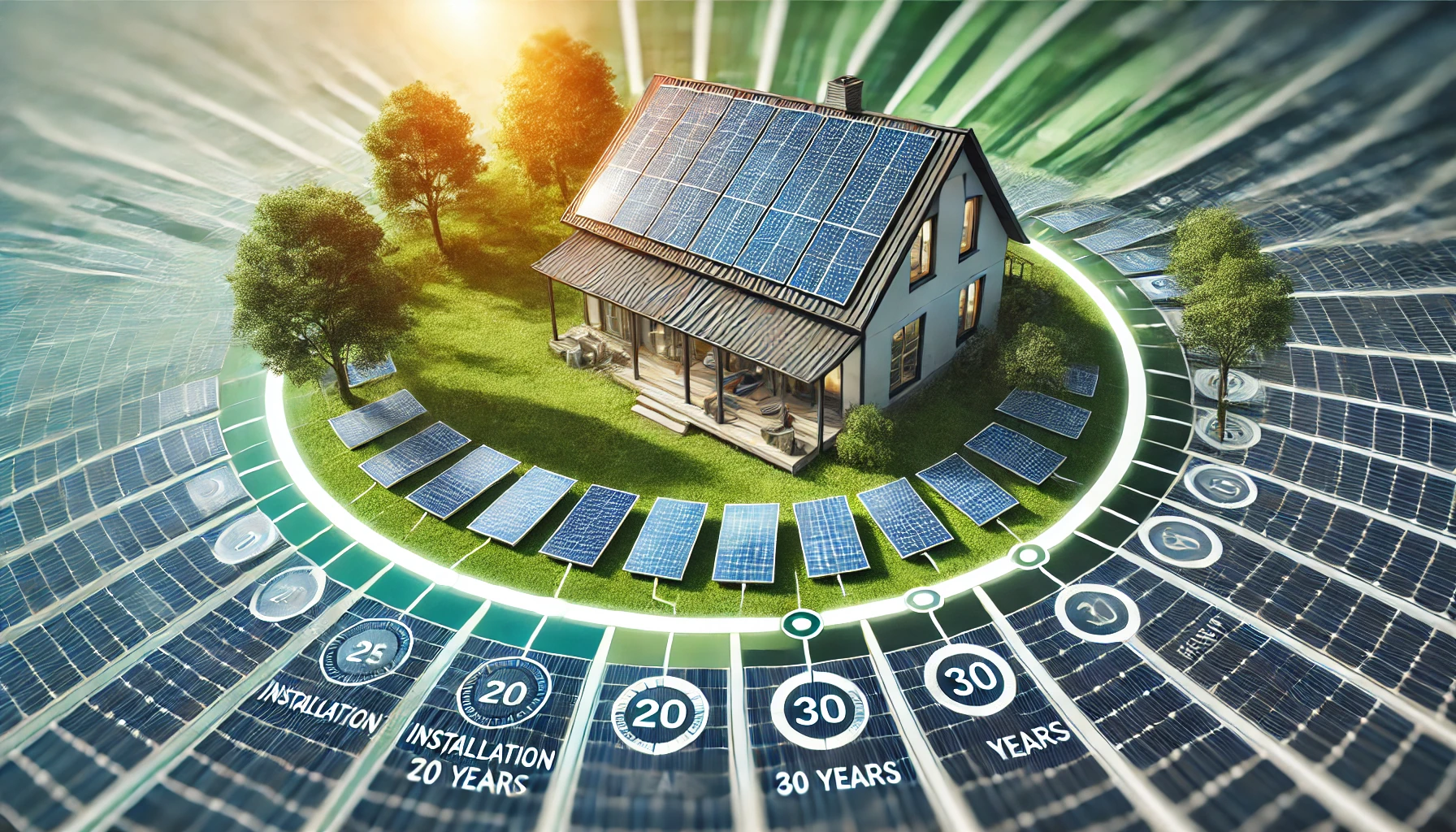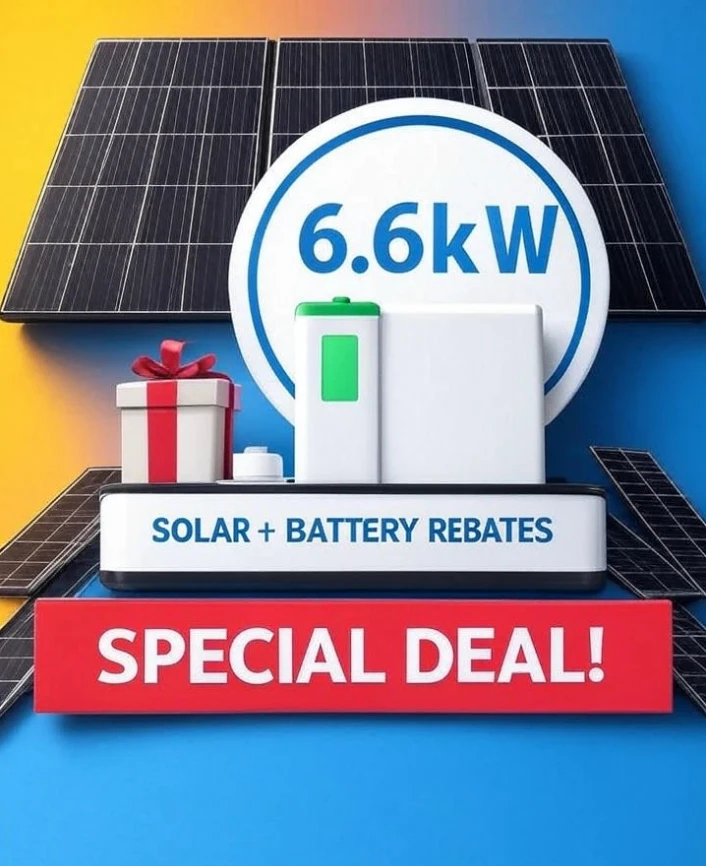Understanding Solar Panel Lifespan

Understanding Solar Panel Lifespan
Solar panel technology has made significant strides in recent years, leading to improved durability and efficiency. High-quality solar panels can now last for decades when properly installed and maintained. Understanding the lifespan of solar panels is crucial for maximizing their benefits and ensuring a solid return on investment (ROI). This guide explores how long solar panels typically last, factors affecting their lifespan, and maintenance tips to optimize their performance over time.
How Long Do Solar Panels Last?
Most solar panels are designed to last between 25 and 30 years. Residential solar panel systems often come with warranties guaranteeing at least 20 years of operation, typically ensuring a minimum of 80% of their original efficiency by the end of that period. Here are some important points to keep in mind:
- Solar panels generally last 25 to 30 years.
- Over time, they produce less electricity as their efficiency gradually decreases.
- Panels may continue to function beyond 30 years, but their energy production will be significantly lower compared to their initial output.
- Warranty terms can provide a reliable estimate of a panel’s expected lifespan.
Factors That Impact Solar Panel Lifespan
Despite their durability, several factors influence how long solar panels remain efficient. Here are the key considerations:
1. Quality of Materials
Solar panels made from high-quality materials are better equipped to withstand extreme conditions, offering enhanced resistance to wear and tear. Lower-quality panels, on the other hand, are more prone to degradation and damage, reducing their overall lifespan.
2. Environmental Conditions
Weather plays a significant role in solar panel longevity. For example, prolonged exposure to UV rays, high temperatures, or severe weather events can accelerate the degradation process. In regions like Australia, where sunlight is abundant but UV intensity is high, selecting panels specifically designed for harsh climates is critical.
3. Maintenance
Proper care can extend the life of your solar panels. Dirt, debris, and animal droppings can obstruct sunlight and reduce efficiency. Regular cleaning and inspection ensure optimal performance and minimize the risk of long-term damage.
4. Installation Quality
A well-installed system provides the stability and alignment necessary to maximize energy production and durability. Poor installation practices can lead to premature wear or mechanical issues.
5. Natural Degradation
All solar panels experience a gradual decline in efficiency over time. On average, panels degrade by about 0.5% to 1% per year. Panels manufactured after 2000 often exhibit lower degradation rates due to advancements in technology.
Tips to Extend the Lifespan of Solar Panels
Maximizing the lifespan and efficiency of your solar panels requires consistent attention. Here are some practical tips:
1. Regular Cleaning
- Remove dirt, dust, and debris regularly to maintain maximum exposure to sunlight.
- Follow the manufacturer’s cleaning instructions to avoid voiding warranties or causing damage.
2. Routine Inspections
- Check panels for visible damage, such as cracks or discoloration.
- Inspect wiring and connections to ensure they are secure and free of corrosion.
3. Professional Maintenance
Schedule annual professional inspections to identify and resolve issues early. Technicians can:
- Inspect mounting systems and electrical components.
- Evaluate inverter performance.
- Perform a comprehensive system health check.
4. Trim Surrounding Vegetation
Ensure no overhanging branches or nearby foliage shades the panels, as shading can reduce efficiency and cause localized damage.
Advances in Solar Panel Technology
Improvements in solar technology have contributed to longer-lasting panels with lower degradation rates. Research by the National Renewable Energy Laboratory (NREL) indicates that modern solar panels degrade at an average rate of less than 0.4% per year, compared to the industry standard of 1% per year in earlier decades.
Are Solar Panels Worth the Investment?
Given the durability and efficiency of modern solar panels, they represent a highly worthwhile investment for homeowners and businesses. Key benefits include:
- Reduced Electricity Bills: Generating your own renewable energy lowers utility costs over time.
- Environmental Impact: Solar panels help reduce greenhouse gas emissions by providing clean, sustainable energy.
- Increased Property Value: Homes equipped with solar energy systems often have higher resale values.
Conclusion
The lifespan of solar panels has improved significantly, thanks to technological advancements and better manufacturing practices. By choosing high-quality panels, maintaining them properly, and addressing issues promptly, you can ensure their efficiency for decades. A well-maintained solar system not only delivers substantial financial and environmental benefits but also maximizes your return on investment. If you’re considering solar energy, understanding the lifespan of solar panels is essential for making informed decisions and achieving long-term success.
Get in Touch with Us
TALK TO OUR EXPERTS
See how much you can save with solar energy
